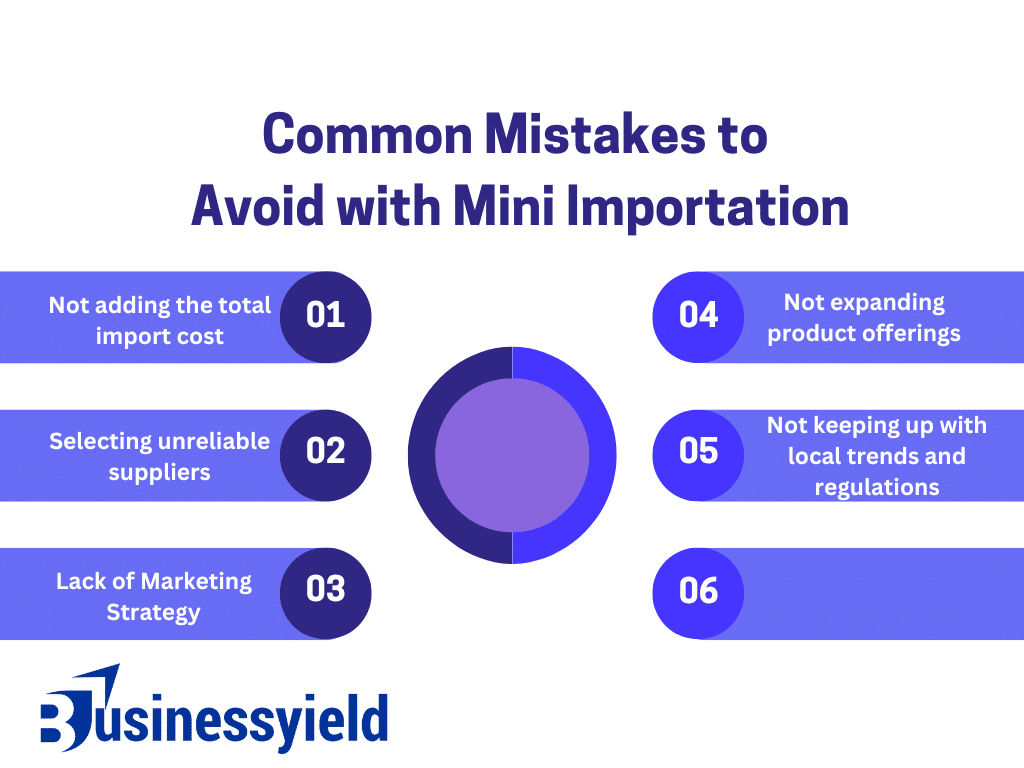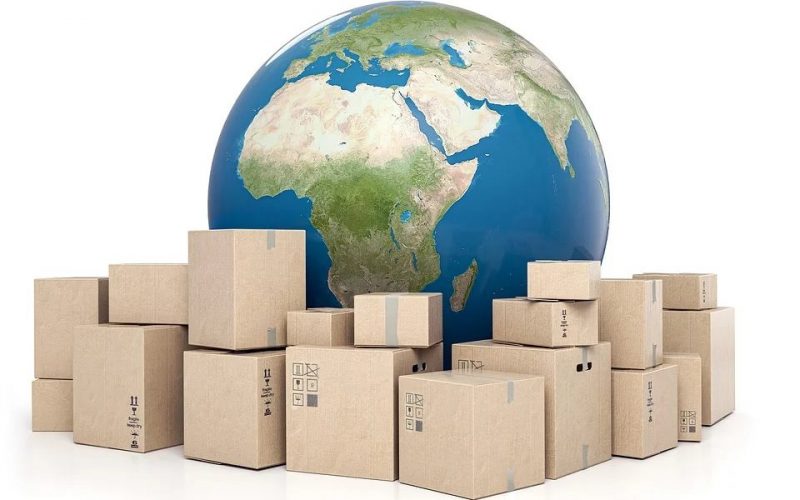Starting a mini-importing business in Nigeria is an interesting endeavor with high-profit potential. With global access to low-cost items, notably from China, the United States, and Europe, you can begin small and expand into a full-fledged firm. But let’s be honest: it’s not as simple as going online, hitting a few buttons, and watching the money come in. There’s study, strategy, and, yes, some hustle involved. In this article, I’ll walk you through the steps on how to start a profitable mini-importation business in Nigeria.
What is Mini Importation?
Mini importation is a business concept in which individuals buy goods in tiny quantities from international suppliers, especially in China, at a low cost and then resell them in Nigeria at a higher price. Thanks to platforms like Alibaba, AliExpress, and 1688, it’s easier than ever to source things in small quantities, as opposed to massive shipments that major firms handle.
Why is the Mini Importation Business a Goldmine?
If you live in Nigeria, you may have noticed that foreign products frequently dominate the market. Nigerian customers have a high desire for a variety of commodities, including technologies, fashion, and beauty products. But have you ever thought about how to become the one that supplies these in-demand items?
The microimportation business offers precisely that possibility. Whether you’re a student, entrepreneur, or professional, small importation enables you to use worldwide marketplaces to obtain low-cost products and sell them profitably. And the best part? Starting with as little as ₦20,000 is sufficient, without the need for millions.
How To Start a Mini Importation Business in Nigeria
#1. Identify Your Niche
The first step toward success in the microimportation business is determining what type of things you want to import. Some people like trendy things such as bags and shoes, while others choose electronics, accessories, or beauty products. Choosing a niche is important since it allows you to target the appropriate audience. When I originally started, I tried several categories before settling on electronics since they offered a better profit margin.
Here are some popular product categories:
- Fashion: footwear, handbags, and outfits
- Beauty Products: skin care, hair extensions, cosmetics.
- Electronics: gadgets, accessories, and phone cases
- Home Goods: kitchenware, bedding, and decorative things
It is critical to investigate current market trends, demand in Nigeria, and what is trending on platforms such as Jumia, Konga, and social media.
#2. Source Products from Reliable Platforms
Once you’ve decided what things to sell, the next step is to figure out where you can get them at a low price. Here’s where micro importation shines—there are various websites where you can obtain quality things at reasonable prices:
- 1688.com: This is a Chinese wholesale website where you may purchase things in small quantities at factory pricing. To process orders and shipments, you will need a middleman or agent.
- Alibaba: Known for bulk purchasing; however, many merchants provide lesser quantities. You can negotiate costs directly with suppliers.
- AliExpress: Ideal for small importers because vendors accept purchases in small quantities and shipping options include ePacket, which is both economical and quick.
Be sure to:
- Read product reviews and seller ratings.
- Communicate with the supplier to ensure the quality of the products.
- If necessary, use a trusted agent to improve negotiations or resolve supplier difficulties.
#3. Calculate the total cost of importation
Most newcomers make the fundamental mistake of underestimating the total cost of importing. The overall cost includes:
- Product cost: The price of the items you’re buying.
- Shipping cost: Shipping prices vary according to the size and weight of your delivery.
- Customs and duties: Depending on the value of your items, Nigerian customs may levy tariffs. Always check the latest tariffs on the Nigeria Customs Service website.
It is critical to be upfront about your costs so that you do not sell your products at a loss. A decent rule of thumb is to include at least a 20%-30% markup to cover any hidden costs.
#4. Select Your Shipping Method
When it comes to shipping, there are several options, and your choice will influence how quickly you receive your goods and how much you pay. Popular shipping techniques include:
- Express Shipping (DHL, FedEx): Quick and secure, but more expensive.
- ePacket: Cheap and with tracking, but can take up to three weeks.
- Sea Freight: Great for heavy things, but can take months to arrive.
If you are starting with lightweight goods, it is recommended to use ePacket or conventional air shipment until you scale up.
#5. Set up a payment method
When ordering from international vendors, you will require a dependable payment mechanism. Most importers conduct transactions through systems such as PayPal, Payoneer, and Alipay. However, Nigerian institutions such as GTBank and UBA provide services such as domiciliary accounts to facilitate overseas transfers.
#6. Market your products
Once you’ve secured your products, the next stage is to sell them. In today’s digital age, you have a plethora of outlets to market your products:
- Jumia/Konga: Register as a seller on these e-commerce sites.
- Social Media: Use Instagram, Facebook, and WhatsApp to promote your products.
- WhatsApp Business: A free platform for directly communicating with customers, displaying catalogs, and managing orders.
I’ve discovered that creating trust with customers through positive feedback and word-of-mouth can greatly increase revenue. Always provide exceptional customer service and deliver on time to keep customers coming back.
What You Need to Know About the Costs
You can start with as little as ₦20,000, but more capital increases your options. A greater budget (e.g., ₦50,000 to ₦100,000) allows for a wider range of goods or bulk purchases, resulting in lower unit prices. Fashion items, like jewelry or phone cases, can be obtained for as low as ₦500 per item and sold at a markup of ₦2,000 or more locally.
However, keep in mind that starting with a minimal budget may require you to be more discriminating in the things you import. Electronics and gadgets, which are in high demand, may require extra capital due to higher startup expenses and shipping fees. Having additional capital allows you to experiment with other delivery options, such as express shipping, which can deliver your items faster but at a higher cost.
Tip: Many successful mini importers began small and reinvested revenues to grow. Don’t feel compelled to start big; what matters more is making sound decisions and rising steadily.
Common Mistakes to Avoid with Mini Importation

#1. Not adding the total import cost
One of the most common mistakes new importers make is neglecting to account for all of the fees associated with the importation process. Many newcomers rely entirely on the product price mentioned on sites like AliExpress or Alibaba, however, there are other crucial fees to consider, such as:
- Shipping fees: Shipping rates vary widely depending on the weight and size of the items, as well as the method of delivery (express, ePacket, sea freight).
- Customs duties and taxes: Customs duties and VAT apply to imported products in Nigeria. These fees vary according to the type of merchandise, its claimed value, and Nigerian customs laws.
- Logistics and local delivery: Once your products arrive in Nigeria, you may be charged for conveying them from the port or courier office to your address. These charges can pile up, particularly for larger shipments.
- Handling fees: Logistics or delivery companies might charge you additional handling fees.
Tip: Before placing any orders, use a tiny importation cost calculator or carefully total all possible expenses. This guarantees that you understand your total cost and can price your products properly to preserve healthy profit margins.
#2. Selecting unreliable suppliers
Choosing the wrong supplier might result in subpar product quality, delayed shipping, and even scams. New importers frequently make the mistake of making significant orders with suppliers that they have not thoroughly verified. Here are some important strategies to prevent this problem.
- Read Reviews: Always read reviews from prior buyers. Look for patterns in feedback that indicate problems with product quality or delivery time.
- Check Ratings: On platforms such as AliExpress, Alibaba, and 1688.com, suppliers are evaluated based on their dependability, product quality, and customer service. Look for suppliers with a good rating and a track record of successful transactions.
- Order Samples: If you’re hesitant about a source, request a tiny sample of their product first. This enables you to test the quality and avoid investing in large orders that may disappoint.
- Communicate Directly: Before placing an order, ensure that you have clear communication with the seller. Ask questions regarding the product, shipping, and payment options. A supplier who responds quickly and professionally is more likely to be trustworthy.
Tip: Avoid pricing that appears too good to be true. Suppliers who provide products at significantly lower prices than the market may be compromising quality or attempting to defraud clients.
#3. Lack of Marketing Strategy
No matter how good your things are, they will not sell themselves. Many new importers focus primarily on the importing process, failing to develop a comprehensive marketing plan. Here are some frequent marketing blunders and ways to avoid them:
- Not knowing your target audience: Before importing, determine who your ideal customer is. Are they tech-savvy millennials shopping for inexpensive gadgets? Or are parents looking for high-quality baby products? Tailoring your product selection to the appropriate target promotes increased demand.
- No online presence: If you aren’t active on platforms such as Instagram, Facebook, or even WhatsApp, you’re missing out on a large client base. Building an online presence is essential for promoting your items.
- Ignoring paid advertising: Relying entirely on organic traffic or word-of-mouth may result in lower sales. Consider paid advertising on sites such as Facebook Ads or Google Ads to increase traffic and sales.
- Failure to use e-commerce platforms: Selling on marketplaces such as Jumia or Konga can boost your visibility and consumer reach. These platforms allow easy access to millions of buyers who might not find your independent internet business or social media profile.
Tip: Begin your marketing plan before your products arrive. Create anticipation by posting sneak peeks on social media and engaging with potential buyers early on.
#4. Not expanding product offerings
Another error new importers make is focusing on a single type of goods. This limits your market and raises the chance of the product falling out of favor. Diversify your product options by importing things from several categories, such as fashion, technology, and household goods.
Tip: Look into trending products in Nigeria and import those with a proven track record of demand.
#5. Not keeping up with local trends and regulations
Nigerian market trends change quickly, and what was popular last year may no longer be in demand today. New importers frequently fail to keep up with local preferences, emerging items, and changes in import restrictions, resulting in unsold inventory or customs difficulties.
- Keep an eye on local market trends: Platforms such as Jumia, Konga, and social media can provide you with real-time information about trending products.
- Be aware of local regulations: Import limitations or new levies may influence specific products. To prevent customs difficulties, stay up to date on Nigerian trade legislation.
#6. Underestimating customer service
Many new importers concentrate entirely on their products, ignoring the value of excellent customer service. Quick responses to questions, open communication, and professional management of client concerns can all assist in developing confidence and encourage repeat business.
Tip: Create a basic, straightforward return and refund policy and convey it to your customers. This helps to manage expectations and avoid future disputes.
Avoiding these typical mistakes can not only protect your business but also increase your chances of success in Nigeria’s thriving micro-importation industry.
Key Takeaways
- Understanding the market and identifying in-demand products can make all the difference.
- Stick to reputable sites such as 1688, AliExpress, and Alibaba.
- Always account for merchandise, shipping, customs, and other expenses to ensure profitability.
- To increase visibility for your business, use networks such as Instagram and Facebook.
- Repeat customers and favorable feedback will help you maintain and develop your business.
Do I need a registered business to begin small importation?
No, you do not need a registered business to start a minor importation business, especially if you are targeting small, informal transactions via platforms such as Instagram, WhatsApp, or Jumia/Konga. However, registering your firm with the Corporate Affairs Commission (CAC) provides considerable benefits, particularly if you intend to expand your operations.
Having a registered business not only adds legitimacy but can also lead to benefits such as improved supplier arrangements or access to business banking accounts for easier international transactions. A registered firm also gives you the ability to negotiate lower shipping rates or bulk discounts with freight forwarders, which larger suppliers may require for long-term collaborations.
Tip: While registration is not required to begin, it should be considered as part of your long-term strategy, particularly as you grow and deal with more international suppliers and customers.
How long does shipment take?
Shipping times in the microimportation sector might vary substantially depending on the shipping method used. Here’s the breakdown:
- Express Shipping (by couriers such as DHL, FedEx, or UPS) takes around 5 to 7 days. It is the quickest choice, but often the most expensive, particularly for small importers. This strategy is best suited for high-value items or when you require stock quickly. However, when calculating your overall importation expenses, keep in mind that greater shipping prices may apply.
- Standard Shipping (ePacket): One of the most popular alternatives among Nigerian importers, particularly when purchasing from platforms like AliExpress. ePacket shipping typically takes 2 to 3 weeks, balancing affordability and speedy delivery timeframes. This is a fantastic alternative for lightweight, low-cost items that do not need to be delivered immediately.
- Sea Freight: This is the most cost-effective route for large, bulky packages, but it can take anywhere between 4 and 8 weeks. Sea freight is frequently used to import heavier commodities in large quantities, such as home appliances, furniture, and large-scale electronics. If you intend to import these types of products, you should plan for longer delivery timeframes.
Tip: If you’re selling time-sensitive or seasonal products (such as holiday presents or fashion trends), using a speedier shipping method will help you stay competitive and capitalize on current trends.
Conclusion
Starting a micro-importation business in Nigeria is one of the most adaptable and profitable industries available today. By linking to worldwide markets, you can sell products directly to Nigerian consumers at reasonable prices. It requires some research, capital, and a clever marketing strategy, but the possibilities are limitless. So, are you ready to start up a microimportation business today and play a role in Nigeria’s thriving retail market?
- IMPORT EXPORT COMPANIES: List Of Import Export Companies In USA
- Top 13 Most Profitable Importation Businesses in Nigeria in 2024: A Comprehensive Guide
- Small business ideas list: The top 10 (+ free tips)
- Best business ideas to make money right away: 40+ ideas and business plans
- IMPORTS AND EXPORTS: What Do They Mean?






